Staff Reflections
2020: A Year in Review
Unprecedented. Painful. Chaotic. Uncertain. These are just a few of the words that I’ve heard to describe 2020. It’s true that the hardships and losses of this past year come to mind so easily. Yet, as I look back, so much good has also happened along the way. Hope. Love. Endurance. Generosity. Community.
We saw communities coming together. We saw hope and love endure. We saw incredible generosity. We discovered that we are made for change and that together, we can be an irresistible force of good.
In spite of all the hard things that have happened this past year, at World Relief, we’ve been incredibly encouraged by our dedicated staff and volunteers and by the generosity of partners like you. Below is just a glimpse of all the good and positive change we saw take place, and we are grateful that you were a part of it:
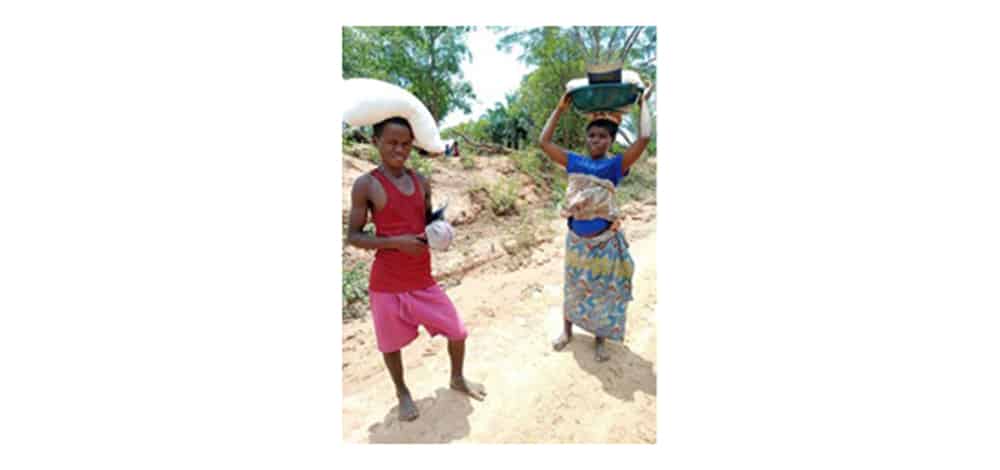
1. Better food security in Congo.
In the Democratic Republic of Congo, 27,438 of the most vulnerable households in the Tanganyika province have received seeds and agricultural tools. Each of these families has also been trained on modern, sustainable and affordable farming so they can begin to transition from a hunter-gather and forager lifestyle to having better year-round food security.

2. Creating opportunities for everyone in North Texas.
At World Relief North Texas, there now exists two new English language and citizen preparation classes — one specifically for Syrian refugees and another, for the first time, specifically for women. Many of the women who join are survivors of trafficking, gender-based violence or otherwise don’t feel comfortable in a classroom full of men.
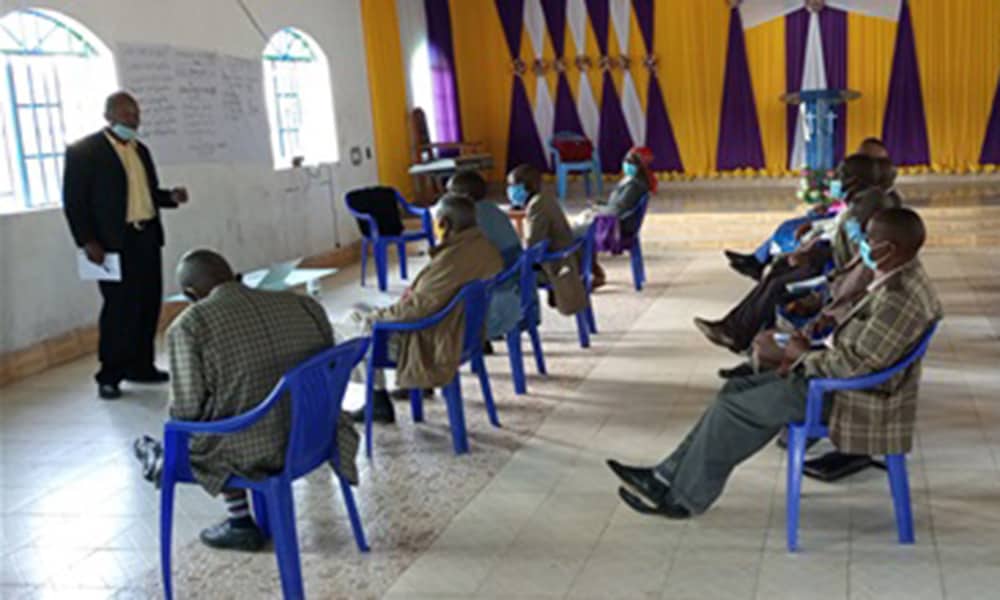
3. New Churches in Kenya.
Because we know the church is a powerful voice in communities, we’re celebrating 72 churches of different denominations in four regions in Kenya that will be instrumental in building a better future for their communities. These churches, like those pictured here at a meeting in Naivasha, will learn about the cycle of poverty, identify community needs, complete a project and begin transforming their futures.
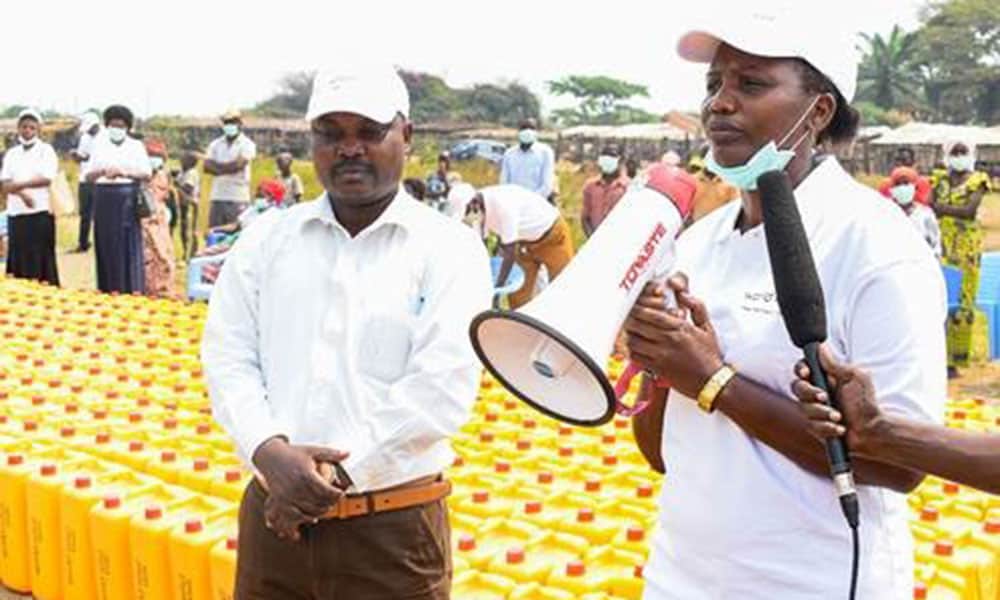
4. Better Hygiene in Burundi.
Families forced to flee their homes in Burundi can now enjoy the simple act of washing their hands and all the health benefits that come along with it. 500 wash kits including soap and these yellow containers were distributed to families in an internally displaced person camp.
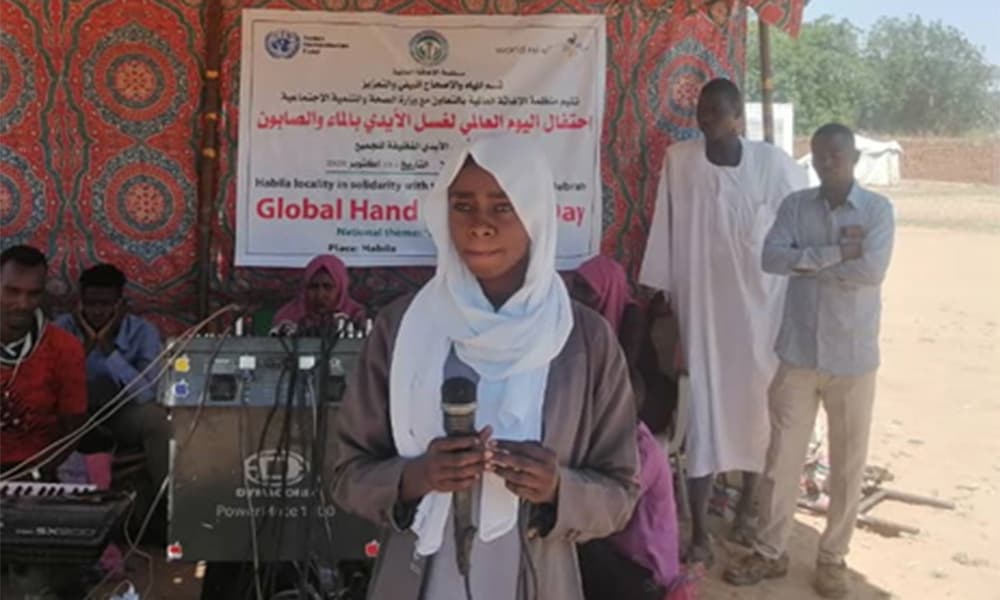
5. Staying healthy in Sudan.
In West and Central Darfur, COVID-19 prevention got a boost as 368 health workers were trained in infection, prevention and control in the early months of World Relief’s response. Proper hygiene was also celebrated at a Global Handwashing Day in West Darfur — a practice made even more important as we continue to work to slow the spread of COVID-19.
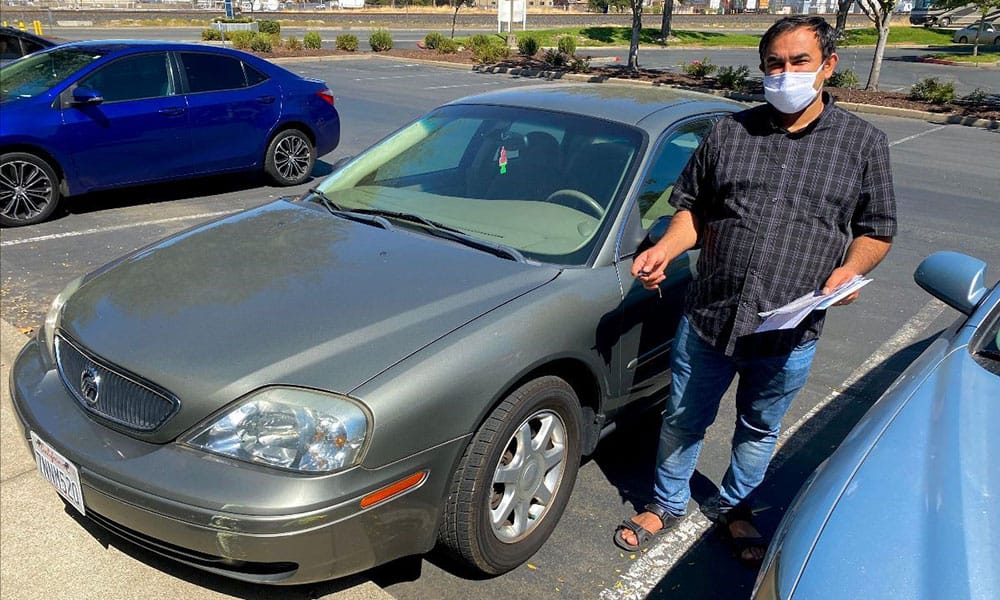
6. Self-sufficiency in Sacramento.
This summer, six families received cars through World Relief Sacramento’s car donation program. For people like Baktash, it means he is one step closer to being economically stable and can drive to work instead of walking 30 minutes each way. For people like Anas, it means keeping his job during the pandemic.
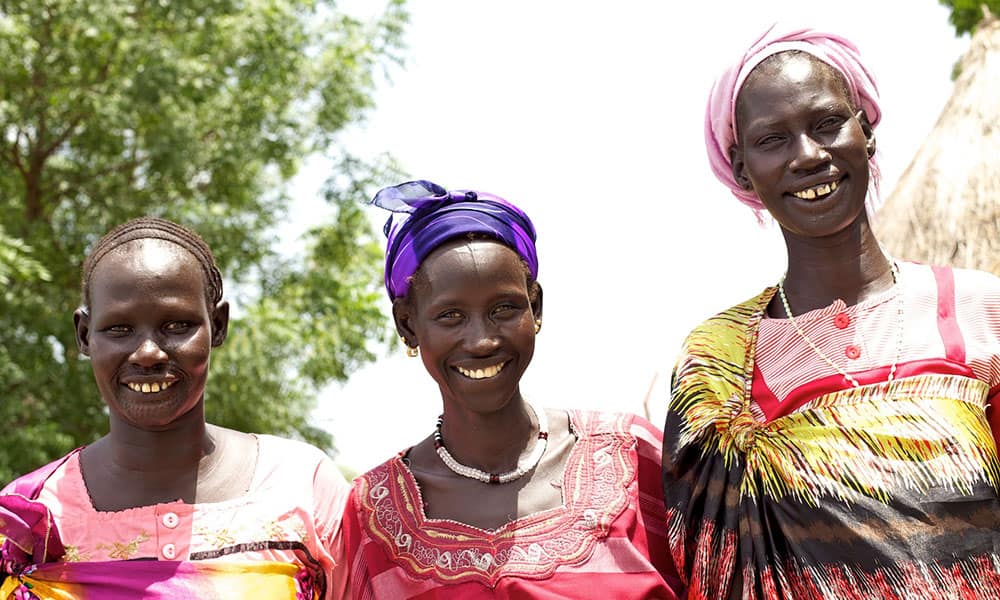
7. Improved health in South Sudan.
In the month of August alone, clinics supported by World Relief delivered 112 healthy babies, treated 276 children for malnutrition and treated 3,268 men, women and children for malaria.
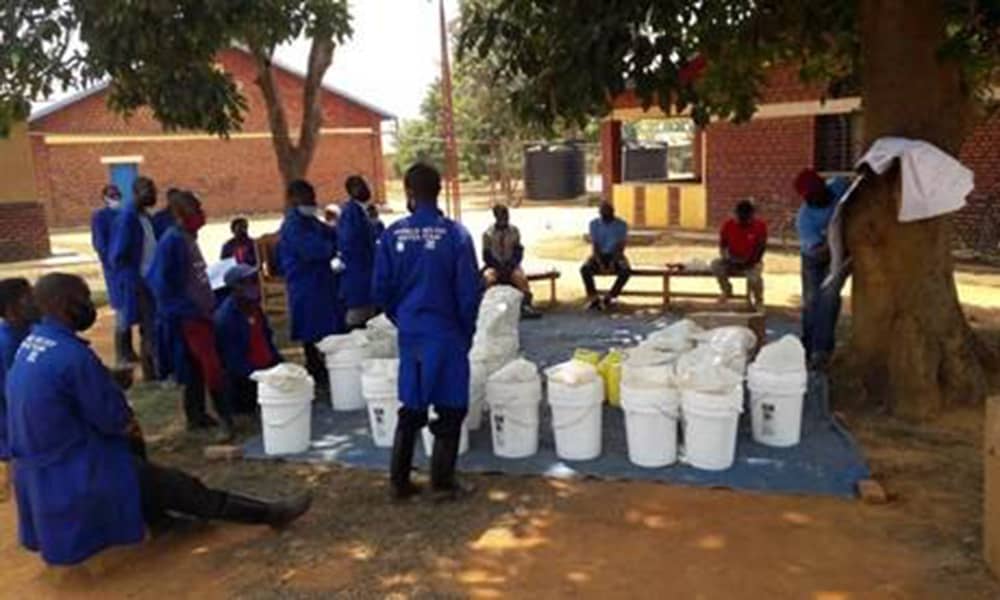
8. Clean water in Rwanda.
92 families have access to clean, healthy water at their homes in both Bugesera and Ngoma districts following the distribution of simple SAM III water filtration systems, shown here.
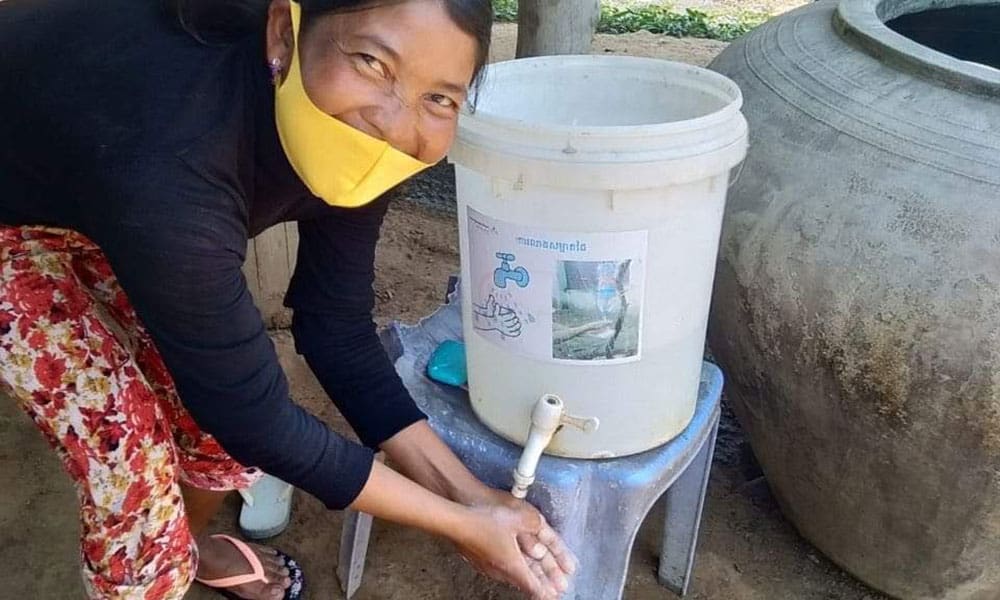
9. Church empowerment in Cambodia.
Through a new partnership with Khmer Evangelical Church, World Relief Cambodia is empowering new churches to serve the most vulnerable in their communities. We’re now able to reach households in two additional regions. In the early days of the COVID-19 pandemic, volunteers reached tens-of-thousands of people with prevention messages like hand washing, covering your cough and wearing masks.
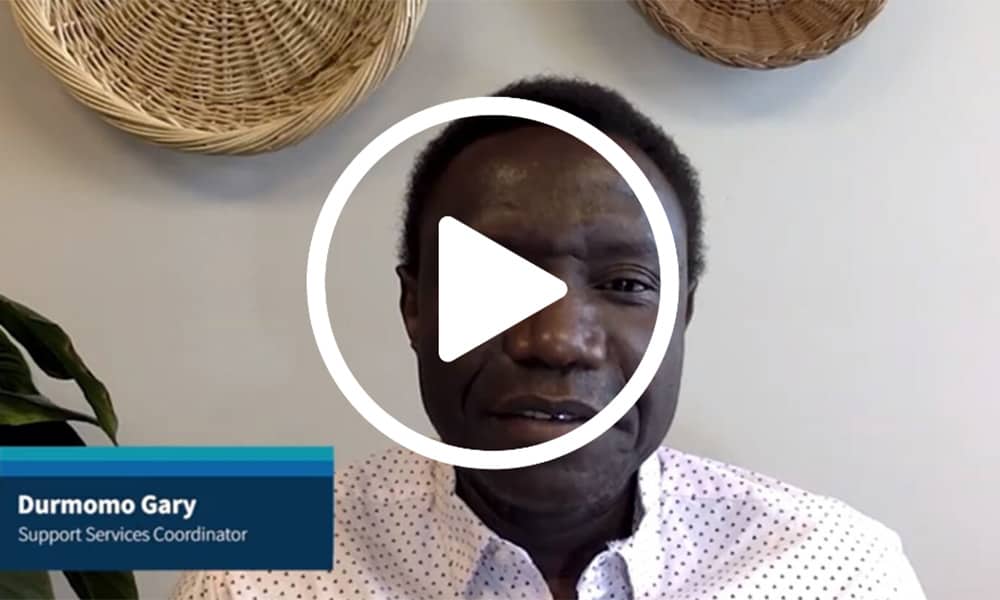
10. Renewed hope for refugees.
President-elect Biden has pledged to raise the refugee ceiling from 15,000 each year to a more historical average of 125,000. We are thankful for renewed hope for people who have lived through experiences like what Durmomo shares in this video, and we are calling on the President-elect to follow through.
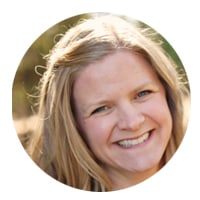
Karyn Bryant has worked with donors and philanthropists to put love into action for causes they feel passionate about. She joined World Relief’s strategic partnership team in January 2020. When not working, you might find her cooking, floating on a river or spending time with her husband and two young children where they reside just outside Sacramento, California.

Dana North serves as the Marketing Manager at World Relief. With a background in graphic design and advertising and experiences in community development and transformation, Dana seeks to use the power of words and action to help create a better world. Dana is especially passionate about seeking justice for women and girls around the world.
Unseen Hope
As we round the corner of 2020 toward the end of the year, we’re bringing you more made-for-change stories from across the World Relief community.
Today, Amberle Brown, World Relief’s MEL Advisor and Disability Inclusion Focal Point at World Relief, shares her story of living with a disability and how God is using her experience to bring disability inclusion training to World Relief’s global programs. Amberle’s story reminds us that change hopes because God is faithful.
A Lost Dream
The warm breeze carried the voices of the practicing church choir through the window of our office. I was sitting in a circle with a dozen of my colleagues in Burundi, discussing our plans to reach people with disabilities with the health, child development and economic development programming in our nearby Church Empowerment Zone. This was the life I had hoped for since I was a child, but I had no idea of the hopelessness I would have to endure to get here.
When I was seven, I told my parents (to their horror) that I wanted to be a martyr when I grew up. Eventually, I toned that down and declared that I wanted to be a missionary when I grew up. From that young age, all the decisions I made were centered on my goal of becoming a missionary: I became a nurse as an avenue to serve in closed countries, I spent summers abroad, I even refused to date boys who didn’t also want to be missionaries.
But a few weeks after I turned 21, I was admitted to a burn ICU for toxic epidermal necrolysis (TENS) – an extremely rare allergic reaction that affects 1 in 2.5 million people – and kills one in three who have it. There is no established treatment for TENS – doctors must sit by as the patient’s body attacks itself, causing skin and organs to lose their linings like a burn.
Over the next month, I lost 95% of my skin and the lining of organs including my lungs and eyes. As my flesh melted away, so did my hopes of being a missionary in a remote part of the world. By God’s grace, I hardly remember any of that month, as a machine forced air into my decaying lungs and artificial bandages served as the barrier between me and the world. When I left the hospital, my eyes were severely scarred, making the world a blur.
And though I could see people like shadows, I was left with a much deeper pain – a pain of not understanding why God would give me a dream and then take away what I felt was my ability to fulfill that dream as I envisioned it.
Pieces of Hope
As I learned how to live with a disability, I also discovered more about the global situation of people with disabilities: Around the world, people with disabilities are twice as likely to live in poverty; they are more likely to be hungry, have poor health, lack education and be victims of violence; and only 5% of the 1 billion people with disabilities in the world have ever heard the gospel.
And yet, because of physical, communication and attitudinal barriers, people with disabilities are far more likely to be left out of the very efforts intended to foster their thriving.
But in these seemingly hopeless discoveries, God began to restore broken pieces of my hope. For the first time I noticed a Jesus who stopped in his tracks for people with disabilities over and over in the gospels. I learned that my vision loss in fact made it easier for me to rely on God rather than my independence. And I found that my disability itself allowed me to notice and break down barriers that most of us overlook.
My experience with disability propelled me and my team to look more closely at World Relief’s efforts to tackle the world’s biggest problems, to assess and dismantle barriers that might have kept people with disabilities from benefiting from our programs, and to partner with pastors to address harmful beliefs and stigma about disability in the countries where we work.
Bringing Hope to Others
Over the past 18 months, Disability Inclusion (DI) has become integral to World Relief’s mission and strategy. Early emphasis in this work has been focused on understanding the contexts where we work, preparing DI tools and equipping staff to begin DI integration in programs.
In total, we’ve engaged more than 3,400 individuals around DI issues, helping change their perspectives and beliefs about people with disabilities, and guiding them on the journey to understand, identify, serve and treat people with disabilities as men and women made in the image of God.
This work has been piloted across several of our programs in Burundi and Malawi, where 693 local leaders have been reached with DI messaging. Our Parenting for Life couple facilitators have also been taught to better understand the unique needs and constraints that parents of children with disabilities face.
Likewise, 1,966 parents (754 in Burundi and 1,212 in Malawi) have been introduced to a new way of thinking around disabilities, helping them change the way they interact with and treat their children, especially those with disabilities. Many have shifted their mindset as a result of these programs; while they might have previously thought that having a disabled child is a curse from God, they now know to celebrate and support children with differing needs and abilities.
Finally, DI is beginning to inform projects on the ground, the decision-making process, and how we meet the needs of our beneficiaries. In Malawi, for example, a project team focused on improving sanitation conditions within schools worked with children with disabilities in the design of latrines to ensure these facilities would be disability-friendly. These are just a few of the exciting initiatives that are beginning to take shape across our international programming.
Today, I thank God for my disability. I thank God that in my vision loss he has given me a new vision for a world where people with disabilities are embraced by the Church, included in development efforts, and valued by their communities. The winds of hope have come over me afresh. I see redemption coming both in my own life, and in the lives of 1 billion other people with disabilities because real Hope is not based on what we see, but on what we don’t yet see.
“For we were saved in hope, but hope that is seen is not hope. For who hopes for that which he sees? But if we hope for that which we don’t see, we wait for it with patience.” Romans 8:24-25
When you give to World Relief, you support programs and initiatives like our Disability Inclusion work in Malawi and Burundi. Join us in bringing transformation to the world’s most vulnerable.
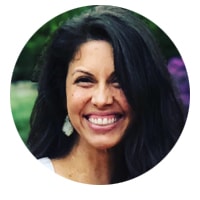
Amberle Brown is the monitoring, evaluation, and learning advisor for WR’s USAID-funded community-based RMNCH work and World Relief’s Disability Inclusion Point Person. Her personal experience with vision loss sparked her passion for disability inclusion, which has led her to work with World Relief to promote disability inclusion across all program sectors and to co-found The Banquet Network, an organization that equips churches to include people with disabilities. Amberle holds an MSN and MPH from Johns Hopkins University and a BSN from Texas Christian University.
Change Rebuilds: Jerome’s Story
As we round the corner of 2020 toward the end of the year, we’re bringing you more made-for-change stories from across the World Relief community.
Today, World Relief Chicagoland’s Jerome Bizimana shares his story of rebuilding. He fled violence in his home country of the Congo and eventually resettled in Illinois. Jerome now works for World Relief, and his story reminds us that change rebuilds because we serve a God who is in the business of rebuilding.
We hope Jerome’s story excites and inspires you to join us as we come alongside others to rebuild.
Fleeing From Home
It was 1996 and the war had just broken out. The Democratic Republic of the Congo had always been my home. But this was a brutal, bloody war, and it was too dangerous to stay in the country, so my family and I fled. For the next 19 years, we lived in one Tanzanian refugee camp after another. When one camp closed, we packed up and moved to another. It wasn’t perfect, but it was a life away from the war.
One night in 2012, I was attacked by criminals at my home. Luckily, nearby police officers were able to save me from harm, but my assailants escaped. Before fleeing, they told me that they would kill me. They told me that they had to “terminate my life,” but never gave a reason why.
My heart was broken, and from that day forward, I lived in constant fear. I couldn’t sleep, and many nights I would go to bed wondering if I would wake safely in the morning.
My eyes are wet with tears as I write this. I do not usually talk about my past. I prefer to forget the thirty-one years of my life that I lived hopelessly. But I hope that sharing my story will help others by bringing awareness to the need for refugee resettlement support.
Had it not been for the support systems in place, my family and I never would have been given the opportunity to resettle in the United States as refugees. But thanks to the United Nations refugee services, we were given that chance in 2012. We arrived in the U.S in 2015 after three years of waiting.
But relocation was only the first step.
New Challenges
Life in the U.S. was more difficult than I expected it would be prior to my arrival. My family and I had lived a rural life in Africa. This means that we had never rented a house, paid a monthly bill or applied for medical benefits.
I was so confused, and I wondered if I was destined to be homeless. I wondered how I would survive. During sleep, I dreamed of someone breaking into our new apartment and killing us. The trauma from my 2012 attack was apparently still causing me great anxiety and pain, and that pain was now amplified in this new place.
And the culture was so new, too. During the week leading up to my first Fourth of July, I mistook the sounds of fireworks going off at night for bullets. It wasn’t until I was able to speak with my World Relief caseworker the following morning and hear her explanation that I was able to breathe a sigh of relief.
Building Something New
Over the next few years, with the help of the great staff at World Relief Chicagoland’s Aurora office, my family and I slowly built a new life here in the U.S. At first, we survived on less than twenty dollars a week. But thanks to the case managers and employment counselors at World Relief, my family and I continued to work and learn and acquire new skills.
After a while, I started to think about ways that I could give back. I felt so fortunate, and I wanted to help others that were in my situation. In the beginning, I volunteered at World Relief by providing transportation for new refugees who needed a way to get to their appointments. But I wanted to do even more, and so I kept this request in my everyday prayers.
Then one day, a World Relief AmeriCorps Lifeskills Coordinator who had heard about my daily prayer brought to my attention a job opening at World Relief. I first doubted to apply.
“But with my broken English, do you think I will get this position?” I asked.
But he encouraged me to give it a try anyway and leave the rest to God. So I prayed, and then I applied for the job.
A few weeks later, I was offered the position. I am now a Family Support Coordinator at the World Relief Chicagoland Aurora office.
I love working at World Relief because World Relief changes lives. When I do my job, I am helping God’s children. When my service brings a smile to someone’s face, I am happy.
Back in Africa, I lived a life without goals. But now I have many goals. I have hopes and dreams and plans for the future! I go to bed every night feeling safe, and I wake up in the morning without fear.
I never thought I would be living the life I live. But with the support of World Relief, my life has changed. I believe their services are crucial for helping refugees and other immigrants. This helps them build a prosperous life here in the U.S. Even a one-dollar donation to World Relief means a lot. That dollar will save the lives of countless families in need.
Sometimes I wonder what my life would be like if World Relief had not come to my aid. I still do not know the answer, but I do know that supporters of World Relief’s mission empower millions of families like mine. I have nothing to give that can show you how important your love and support is, but I so want to say thank you so much.
I keep each and every one of you in the World Relief family in prayers. Your hands have been helping to change our lives — the lives of vulnerable populations. Today, I pray that you join me in helping immigrants rebuild their lives in the U.S. and empower churches around the world to serve the most vulnerable.
Will you join us by giving today?
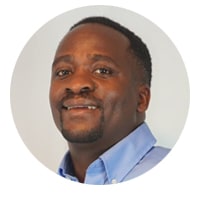
Jerome Bizimana is a Family Support Coordinator at World Relief Chicagoland. He was resettled in the U.S. in 2015 after leaving his home in the Congo. Jerome is now a dad of three children, and he loves to travel.
20 Reasons to Give Thanks in 2020
It’s Thanksgiving week. The time has come when we would normally gather with family and friends, celebrate the start of the holiday season and reflect on the things we’re grateful for. This year, those celebrations won’t be possible for many of us, and the practice of gratitude likely feels especially difficult. Many of us are simply yearning for an end to 2020. Yet it’s during times like these that it’s more important than ever to count our blessings and find joy and gratitude amidst the chaos. In doing so, you may find there’s still much to be thankful for in 2020.
We asked 20 of our staff and partners around the world to share just some of what they’re grateful for this year and how they’ve seen God’s faithfulness shine through in 2020. We hope their responses encourage you, as they have us.
What are you grateful for in 2020?
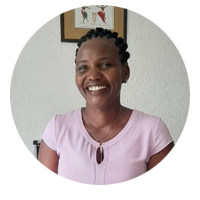
Cesalie Nicimpaye, Country Director, Burundi: I give thanks that God has been so faithful during the uncertain days of COVID-19, followed by the Burundian presidential election and the death of our president. Our strength in the Lord was renewed and we were able to lean on his promises. God spoke to us in different ways and kept us safe.
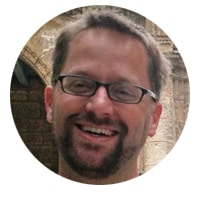
Jamie Berry, Foundations Manager, Cascade, CO: 2020 was a year of refining. It was so hard on so many levels, but when things were dark, hard and hopeless, we saw God show up the most in brilliant ways. We remember those moments of joy and faithfulness because they stand out so bright in such dark times.
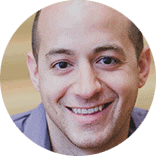
James Misner, SVP of Partnerships, Baltimore, MD: God moved us further apart than ever before (physically), only to make us closer than we could have envisioned. He provided for us when we thought there was not a way, and gave us hope, energy and inspiration to keep going. For that, I will forever be thankful.
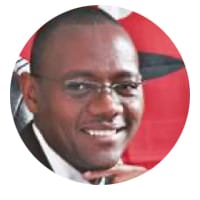
Elias Kamau, Country Director, Kenya: We are so grateful and so encouraged by the faithfulness of God! In 2020, we doubled our country programming and launched a new Church Empowerment Zone.

Charles Franzén, Baltimore, MD: I’m grateful that our humanitarian country programs remain strong and even expanding with steadfast country leadership. We are convicted that although times are now tough, God is in control and will show the way so that we continue to serve those in greatest need wherever we work.
CityWell Church, Church Partner, Durham, NC: We are so grateful to be in partnership with World Relief Durham and for the important work they do in our community and for each one of God’s children. Through our partnership [in 2020], we’ve been able to offer meals and financial assistance to families, even in the midst of this global pandemic.
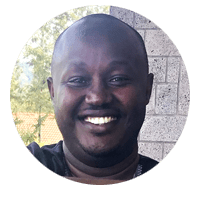
Moses Ndahiro, Country Director, Rwanda: Looking back at 2020, one thing that comes to mind is God’s faithfulness. It has been a difficult season, but God provided not only the financial resources we needed to serve the most vulnerable but he also protected our staff. No one up to now has died because of COVID-19 or accidents.

Bethany Seremet, Director of Partnership Engagement, Baltimore, MD: I saw the Holy Spirit dump buckets of color and creativity on the old ways of thinking and doing and beautifully declare – See, I am doing a new thing!
Adula Gemta, Country Director, Sudan: I am thankful that we were given the opportunity to bring hope to the hopeless and demonstrate Christ’s love across Sudan in 2020.
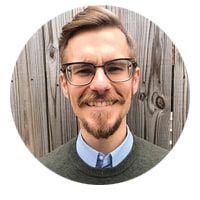
Nathan Riedy, Director of U.S. Programs Fundraising, York, PA: I’m grateful that in 2020 God made sure that World Relief would continue to be a light for refugees and immigrants in the U.S., despite almost every force working against it.

Ric Hamic, Former Country Director, South Sudan: I am so thankful for our incredible staff in 2020, many who sacrificed their leaves to continue providing lifesaving services and to scale up for COVID-19 in an incredibly difficult environment.
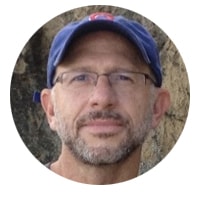
Jeff Walser, Director of Partnerships, Tampa, FL: The world was shaken and we were left with what cannot be shaken. Our faithful God worked in mysterious ways. Through shadows and uncertainty, He was faithful and creative. And he dazzled us with his bright designs.

Karyn Bryant, Changemakers Lead, Sacramento, CA: In 2020, many of us finally woke up in a new way to the injustices and vulnerabilities of both ourselves and our world. It was needed, and for that I am grateful.
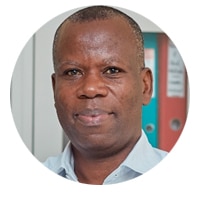
Jean Nyandwi, Country Director, DRC: Despite the challenges of COVID-19, I’m so grateful that in 2020 we were able to bring God’s love to a new group of socially outcast members of society, the Pygmies, in the remote villages of Ituri, Tanganyika, and North Kivu Provinces.
Selina Máté, Volunteer, Durham, NC: I’m so grateful to have had the opportunity to watch [my mentee] graduate high school, begin her first job and start college this year. It’s been nothing but a blessing, and I am so thankful to have spent the last year mentoring her while she begins to navigate adult life.

Tim Breene, CEO, Boston, MA: I’m thankful that the last year has shown us once again the wisdom of placing our trust in God; it has shown us that disruption can be a spur to creativity and that God’s solutions are often different and bigger than anything we could put in a business plan.
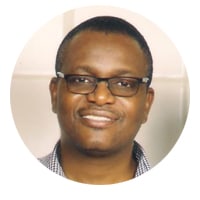
Gibson Nkanaunena, Country Director, Malawi: We celebrate and give thanks that through faith, courage, persistence and resilience, we were able to serve over 1.9 million most vulnerable people across 13 districts of Malawi in the midst of an unprecedented and deadly COVID 19 pandemic.
Bryan Wilkerson, Church Partner, Lexington MA: My congregation and I are so grateful that through World Relief, we’ve been able to be the hands and feet of Jesus in the world, serving the most vulnerable.
Lance Morgan, Donor, Waukesha, WI: I am so thankful that even in a year of so much upheaval, I have been able to use my gifts and my resources to bless other people. I just feel so humbled that God would use me to help and bless others, and I’m thankful for that.
Heidi Guttschuss, Education Manager, Sacramento, CA: I’m especially grateful for the incredibly creative staff I work with at World Relief, coworkers who are encouraging and keep coming up with new ideas to help us all thrive, and supportive leaders who do an amazing job guiding us through unknown territory

Francesca Albano currently serves as Director of Branded Content at World Relief. With a background in Cultural Anthropology and a graduate degree in Strategic Marketing Communications, she connects her interests in societal studies and global cultures with her training in brand strategy and storytelling. Francesca is especially passionate about grassroots community development and the treatment and advancement of women and girls around the world.
Change Disrupts, But Love Still Grows
It’s been a year of difficult change. But at World Relief, we believe you were made for change — not just to survive it, but to thrive through it.In today’s story, World Relief’s Vice President of U.S. Programs, Jennifer Foy, shares how amidst this year’s disruption, creativity, resilience and love still grew.
Recently, I was reading stories from our U.S. offices when I came across this one about two brothers who had been resettled by World Relief in Chicago seven years ago. They dreamed of opening up a tailor shop together, and that dream finally became a reality — in January, mere months ahead of the COVID-19 shutdown.
Faced with this new reality, the brothers wondered if their business would survive. But then, local residents started appearing at their shop – many of whom were immigrants themselves – in desperate search of masks.
Most stores were already sold out, and online shops were selling the masks at prices much higher than what these residents could afford. As such, the brothers knew what they had to do. They pivoted their business and began making masks, finding success and even fulfilling orders from other cities and states.
Change disrupts. But that disruption can bring new perspective.
This past March, when everything seemed to change overnight, I, too, wondered what the future would hold. After three difficult years of policy changes, office closures and a diminishing number of refugees being admitted into the United States, our U.S. teams were ready for something new.
But then, COVID-19 hit. Our offices began shutting their doors, staff moved to remote work and we began redesigning our services to meet new needs.
In the early weeks, the rapid change felt like a tsunami, crashing in and overtaking every part of our work and lives. This sudden change felt like another cruel blow to our teams working so hard to share Christ’s love, as well as to those we serve working hard to integrate into their communities.
Once I finally slowed down to catch my breath and take a step back, I realized God was inviting me into a new perspective. As I looked around at all the pain, sickness and unknown, I saw that beneath the chaos, resilience existed.
I began hearing stories just like the one above from across our U.S. network. Burmese refugees in North Carolina were making masks for their community, as were World Relief sewing program participants in Spokane and Seattle. A refugee restaurant owner in California began donating meals to frontline workers. Everywhere I looked creativity, strength, persistence, fierce courage and love grew amidst the chaos of our upturned world.
Among our offices, innovation flourished. Staff and community partners found new ways to serve in a COVID environment. In-person programs such as ESL classes, job training seminars and summer camps all moved online. Volunteer trainings also became virtual, opening up new pathways for people across the country to volunteer, whether they lived near a physical office or not.
When businesses began shutting down and our immigrant communities began experiencing lay-offs, our staff learned new skills and volunteers stepped up to help immigrant business owners navigate the Cares Act Relief and fill out unemployment paperwork.
Church partners also stepped in in new ways, allowing us to meet an immediate need for food. Across our U.S. office network, more than $1.5 million in food was donated and distributed, allowing us to serve over 42,000 families. Our North Texas office alone received $997,000 in food donations for immigrant families in need.
While I am looking forward to the end of COVID, I have seen new doors open and have been forever changed by the love shown in this season.
As we look to the year ahead, I see new strength in our communities — in immigrants who have learned to use technology to help them stay connected; staff who have renewed confidence that they can, with God’s help, move mountains; and a growing diversity within our communities of people from all walks of life stepping up to serve.
Change disrupts, but in that disruption we found hope and overwhelming amounts of love. We gained a new perspective and found an opportunity to rewrite the narrative of 2020 and make change for good.
Will you help us make change for good ?

Jennifer Foy joined World Relief in 2007 as a volunteer in serving many refugee families before joining the staff in 2014. She served in the High Point North Carolina Triad office until April 2019 when she moved to World Relief’s headquarters in Baltimore to take on a national role. In her current role she oversees the program management and development across all U.S. network of offices. She brings 15 years of nonprofit leadership experience leading local nonprofits. Jennifer grew up in Oregon and received a B.A. Sociology from Western Oregon University and later a M.P.A. from Norwich University in Vermont. She lives in Maryland with her husband Will.
I am a Dreamer
I vividly remember June 15, 2012. It was my little sister’s graduation from the University of California, Irvine, and we were getting ready for her big day. The TV was on in the background, playing either Telemundo or Univision. I can’t quite remember which. When the president came on the TV, we all stopped what we were doing to listen as he announced the DACA executive order. Incredulous, yet overjoyed, we all hugged each other!
I came to the U.S. with my family when I was 14 years old. My parents and younger siblings had received their green cards earlier that year through a family petition that was filed in 2001. I aged out of the process and remained undocumented. Getting the news that I could now receive a work permit and protection from deportation filled me with hope. I felt less abandoned. I was given the opportunity to occupy the spaces that were open to my family members as legal residents.
For weeks, I anxiously waited for the DACA forms to become available, checking uscis.gov every chance I got. Once the forms were finally available, I filed my own DACA application. I googled DREAMer blogs, which helped me put together 100+ pages of evidence that demonstrated my continuous presence in the US from 2007 to 2012. Unlike younger applicants, I couldn’t just submit my school transcripts. I graduated from college in 2007 and had worked multiple jobs between then and DACA day 2012. Those jobs ranged from tutoring, babysitting, helping the family business and volunteering at local schools. I had to provide documentation of all these things and more with my application. I often wonder what the immigration officer’s face looked like when he saw my very organized, yet very messy life in front of him. In the end, I received my first DACA work permit on September 28, 2012.
Months later, a friend asked me to join her as a volunteer at World Relief where she was helping with DACA applications. That is how I first started down the path to helping people like me find ways to get legal status. In high school, I dreamt of being an immigration attorney. Back then It felt like an impossible dream — one that I don’t think I ever even said out loud. I wanted to be someone who could provide accessible information to others in my community who were seeking legal status.
I had been exposed to too many injustices not to do something about it. Too many friends and people from church had fallen victim to scams —so-called notarios — who took advantage of people’s desperation to have legal status, only to lead them into significant financial loss and, at times, facing deportation and family separation.
At World Relief, I found a path to my dream. After going through an extensive training process to become a Department of Justice accredited representative, I was allowed to practice immigration law (with limitations) as a non-attorney. For the past seven years, I’ve had the privilege to do what I always wanted. To top it off, I get to work with an amazing group of people that have become my family.
But then, 2017 happened. That year was the worst year of my life as a reality that had been dormant awoke in me. DACA had given me a false sense of belonging and my mom’s death slapped me back into reality: I am undocumented in this country.
My mom passed away unexpectedly while she was visiting Peru. While everyone else in my family was able to travel to Peru to see her one last time and to mourn with our family, I stayed behind.
Thankfully, I am blessed with amazing friends who love me and knew just how to see me through this terrible situation, but the sting remains. I had to stay behind — an ever-present reminder of my undocumented status. And while my mother’s passing struck me to my core, 2017 was also the year a new presidential administration was appointed in the U.S. This new administration sought to terminate DACA. Over the next three years, the administration would introduce many other immigration policy changes, making practicing immigration law even more difficult than it was before.
Immigration in general is a mess. It seems like every other day there are new policies, new forms, new fee hikes, less options for those with low income, new barriers making it impossible for people to get their papeles. In the five months since COVID-19 hit the U.S. alone, at least 47 immigration policy changes have been introduced, and I feel it all.
All these changes are happening to me, they are attacks to people like me. We are working, supporting our families, doing our best to be considered “of good moral character,” hoping for a pathway to get permanent status. We, undocumented people, we already belong. We just don’t have the plastic card that proves it.
Last week, the U.S. Supreme Court blocked the administration’s attempt to terminate DACA, a temporary victory in this long and arduous battle. While I breathed a sigh of relief, the Court said the administration could still end the program if it were to follow the proper procedures. As anxious as that makes me — for myself, for my friends, for my clients — home is here. I will file as many applications as I can until the end. I will do my best to help as many people as I can to ensure they continue to have protection from deportation and a right to legally work.
I know what life without DACA would be. Hard doesn’t quite describe it, and I don’t want it.
But I have hope. My siblings are US citizens now. I helped with their processes myself! Throughout my years at World Relief, I have helped so many become citizens, and I wish I had kept count! When November rolls around, I hope they all vote. And I hope they remember people like me when they do.
Ana Jara is a Department of Justice (DOJ) Accredited Representative at World Relief, where she has worked for six years. She graduated from UCLA and has worked in the nonprofit sector serving the Latino community ever since.
Leveraging Relationships to Serve the Most Vulnerable
A Critical Moment
We are facing a critical moment in the global COVID-19 crisis. While many parts of the U.S. are reopening, the crisis continues to unfold in Africa and other parts of the developing world. While official case numbers remain modest in many countries (due, in part, to limited testing capacity) the severe effects of the pandemic are being felt.
Our international staff are reporting growing signs of economic strain and increasing poverty. Economically, local currencies are losing value, bread and other staples are becoming scarce commodities, and many of those living day-by-day on a day’s wages are going without food because they’ve been unable to make sales in local market places. In many parts of the world, families live on less than $2 a day and children struggle with malnutrition.
In April, Oxfam predicted that the pandemic “could push half a billion more people into poverty” in these regions, “[setting] back the fight against poverty by a decade.” Similarly, the World Food Program has forecasted famine of biblical proportion with the potential for the number of people facing life-threatening food insecurity doubling.
In the countries we serve, we are seeing concerning signs. Even though testing capacity is extremely limited, many countries are seeing sharp increases in the number of confirmed cases — some as high as 50% in a single week. And in countries where cases aren’t officially growing at high rates, other signs of virus spread — such as increased cases of pneumonia and other illnesses — continue to rise.
Learning from the Past
I saw firsthand the lasting effects of disease during the AIDS epidemic when children were left orphaned, and when World Relief served communities in DRC severely affected by Ebola. Without action, there is potential for similar devastation from COVID-19. But there is also hope — local churches, community health workers and local leaders are in the fight daily. Like AIDS and Ebola, this crisis is bigger than something each village can take on by itself. With effective global partnership, we can equip these men and women to help prevent exposure, recognize and treat the infected and mitigate the social and economic vulnerabilities associated with COVID-19.
Now is not the time to withdraw from our global responsibility to love our most vulnerable brothers and sisters abroad. Instead, it’s time to lean in with compassion and justice.
Leveraging Relationships
At World Relief, we are committed to serving and empowering the world’s most vulnerable. That commitment was true before the COVID-19 crisis, and it will continue to be true long after case numbers have declined. Our international teams have already taken steps that could greatly reduce the number of deaths worldwide. They’ve trained local churches and health workers, improved health facilities, provided lessons on proper handwashing and educated households about COVID-19 symptoms.
We believe education and awareness will continue to be our greatest ally in fighting the effects of COVID-19. As we’ve seen in the U.S., rumors spread easily, prompting FEMA to build an entire website dedicated entirely to coronavirus rumor control. Internationally, we’ve encountered superstitions in places like Cambodia where scarecrows have been erected in some communities to scare off the virus. In several countries, we’ve heard reports of individuals with respiratory illness fearful to seek treatment or testing because of stigma. As a result, ongoing efforts to saturate communities with accurate public health information through public awareness campaigns is imperative. Leveraging trusted community voices such as religious leaders is essential in overcoming rumors and stigma.
In the past, this approach has proven invaluable in containing disease. At the onset of the AIDS crisis in Africa, World Relief worked extensively with churches to help break stigmas associated with the virus. And in recent Ebola responses, local churches played a critical role in dispelling rumors, locating and protecting the most vulnerable, training medical personnel and educating the community. As we respond to COVID-19, we are continuing to leverage our relationships with over 3,000 local churches in Africa to share critical, accurate information about how the disease is spread and what should be done if someone suspects a case.
Respond With Compassion
While many countries in which we work continue to have a wide range of varying restrictions, our local network of volunteers and community leaders are using creative solutions to continue our existing life-saving and life-improving services, while also honoring social distancing requirements. The already vulnerable populations we serve are the most at risk of increased hunger, poverty and violence as a result of the social and economic effects of the pandemic. Continuing agriculture and food security programs, economic development activities and child protection activities are crucial.
As we move into this next phase of responding to the coronavirus, our local networks will continue to play a vital role in addressing the economic, health and food security concerns that the virus has brought on. Our commitment to empowering and equipping them in this fight remains steadfast, but we cannot do it without the continued prayer and support of our donors.
To learn more about how we’re responding to COVID, go to https://worldrelief.org/covid-19/, and be sure to follow our live updates here.

Myal Greene has a deep desire to see churches worldwide equipped, empowered, and engaged in meeting the needs of vulnerable families in their communities. In 2021, he became President and CEO after serving for fourteen years with the organization. While living in Rwanda for eight years, he developed World Relief’s innovative church-based programming model that is currently used in nine countries. He also spent six years in leadership roles within the international programs division. He has previous experience working with the U.S. Government. He holds B.S. in Finance from Lehigh University and an M.A. from Fuller Theological Seminary in Global Leadership. He and his wife Sharon and have three children.
Five Ways You Can Stand With Dreamers
Last week, the U.S. Supreme Court issued an opinion that – for the moment, at least – keeps Deferred Action for Childhood Arrivals (DACA) alive.
While the decision was consistent with what World Relief has advocated for many years, I confess that to me, it came as a very happy surprise. I had been dreading a negative decision, which would have meant that more than 600,000 young people would have been poised to lose their work authorization (and, thus, their jobs) and be at risk of deportation. For many of my friends, colleagues and fellow church members whose livelihoods and way of life depend upon DACA – and for many others who know and love those directly affected – the decision is an incredible relief.
The risk of such an encouraging decision, though, is that we run the risk of moving on too quickly.
The Supreme Court decision, while positive, is not a permanent solution. In fact, the Court affirmed the administration’s authority (this one or a future one) to terminate DACA so long as they follow the proper procedure (which, in this case, the Court found the administration did not follow proper procedure). The only durable solution for Dreamers, and the only way they could become U.S. citizens is for Congress to pass legislation such as the Dream Act or something similar.
The reality is that there is still much to do to continue standing with Dreamers. Listed below are five ways you can stand with Dreamers today.
- Get Informed. We’ve prepared a simple DACA and Dream Act 101 explainer that describes what DACA is, what the Dream Act would mean if passed and what the most recent Court decision means. We also encourage you to check out (and share) the website of our partners at Voices of Christian Dreamers, which includes a collection of first-person stories from Dreamers.
- Give. World Relief and other non-profit immigration legal service providers provide competent, authorized legal guidance and assistance in applying for or renewing DACA (as well as applying for various other immigration legal benefits) and charge only nominal fees. But we can only sustain these ministries with support from individuals like you. Give here to help sustain and grow our immigration legal services network.
- Pray. For many of us, the Supreme Court’s decision came as a surprise – so much so that I’m convinced there was some divine intervention. Millions of people were praying for this outcome, but few Court-observers predicted this result based on the oral arguments for the case. Now is the time to continue praying for Dreamers. This guide from the Evangelical Immigration Table and Voices of Christian Dreamers is a great resource to help you as you pray.
- Advocate. Until a law, such as the Dream Act, is passed into law, there is still a great risk that the administration could try to terminate DACA again. It’s important to let our congressional representatives know that this decision does not mean their job is over. It’s a temporary reprieve, and now, we need them to act by passing legislation. A simple way to urge them to do so is to add your name to this letter to Members of Congress signed by various Christian leaders.
- Direct. If you know any individuals who have DACA, or who think they might now qualify for DACA, it’s really important that they access competent, authorized legal practitioners who can help verify their eligibility. Unfortunately, there are always individuals who are not authorized or adequately trained to give legal advice who prey on those desperate for good news by offering too-good-to-be-true promises of legal status or work authorization in exchange for obscene amounts of money. To be sure you’re getting accurate, authorized advice, we recommend consulting with an attorney who is a member of the American Immigration Lawyers’ Association or with a non-profit organization that is recognized by the U.S. Department of Justice – including most World Relief offices and many partner churches to whom World Relief provides technical legal support.
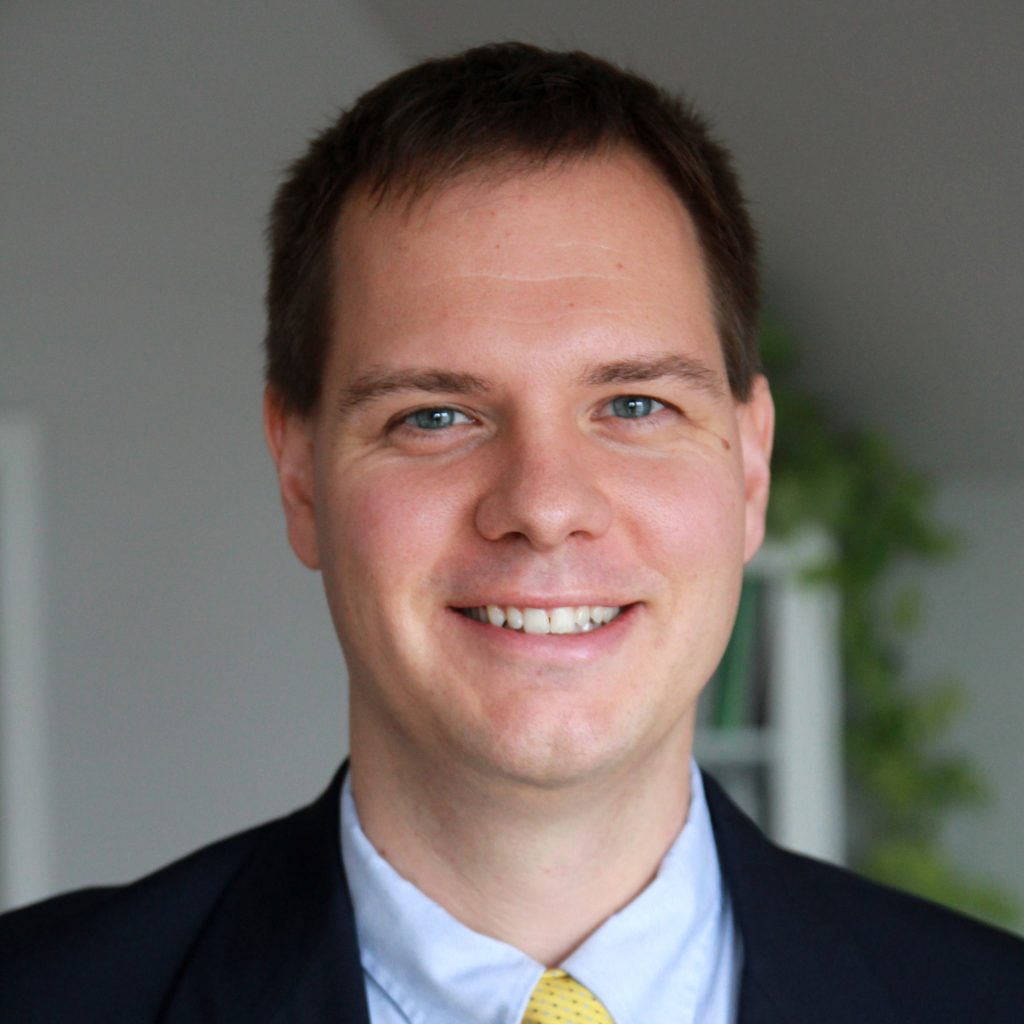
Matthew Soerens serves as the U.S. Director of Church Mobilization for World Relief. He previously served as the Field Director for the Evangelical Immigration Table, a coalition of evangelical organizations of which World Relief is a founding member. He is the co-author of Seeking Refuge: On the Shores of the Global Refugee Crisis (Moody Publishers, 2016) and Welcoming the Stranger: Justice, Compassion & Truth in the Immigration
Debate (InterVarsity Press, 2009). Matthew is a graduate of Wheaton College (IL) and DePaul University. He lives in Aurora, Illinois with his wife Diana and their two children.
It Takes a Village
It was 3 p.m. on a Tuesday afternoon when we got the call. A woman in the Congolese community had contracted COVID-19 — the first of what would turn out to be many cases for the Congolese living in the Quad Cities area. My mind raced with questions as we worked to determine the best plan of action: Does her family have everything they need? Does she understand what the word quarantine means? How many people has she come in contact with? Can we help her while also keeping our teams safe and socially distant?
We were able to connect with her on the phone and talk through the things her doctor had told her. We tried to ease some of her fears regarding the sickness and hoped this would be an isolated incident. Unfortunately, the virus had already started to spread, and over the next several weeks, 60% of the Congolese community would contract COVID-19.
The last several months have been a whirlwind as we’ve sought to manage all the unexpected challenges that have shown up in the face of this global pandemic. While our staff and volunteers have navigated their own challenges working from home, caring for kids and taking in the ever-changing and often confusing news cycle, our clients are even more confused than we are.
This situation is anything but ordinary. To have been forcibly displaced from your home is traumatic enough. But then to arrive in America only to face a pandemic and growing racial tensions can be shocking and isolating. Many of our clients have fled their home countries because of things like violence and ethnic and religious persecution. The events unfolding in America right now are fear-inducing for many refugees.
Similarly, most of our clients come from very high communal societies. Not being able to gather for worship, break bread together or visit a neighbor to help with child-rearing is a foreign and bizarre concept. It’s culture shock on a whole new level, and it’s why our team is so committed to regularly checking in on our immigrant clients and innovating new virtual programs in the midst of this crisis.
At World Relief Quad Cities, we offer a number of different services including Citizenship Classes, Immigration Legal Services, English Language Programs, Youth Mentoring and a culturally appropriate food pantry (meaning that in addition to fresh fruits and vegetables found in most grocery stores, our food pantry also contains many of the staples our immigrant neighbors would have eaten in their home countries).
Prior to the arrival of COVID-19, all of these services were offered in-person. Closing our physical office in mid-March meant we had to make major adjustments to our service model so that our clients could still access the resources they needed and feel connected to their new community.
Our citizenship classes were put on hold, and our food pantry transformed into a drive-through service. The second Monday of every month, around 300 clients pull up outside our office and we hand them a bag of food through their car door. For clients without cars, we deliver the food directly to their homes.
Likewise, our English classes and youth mentoring programs have become a hybrid of online learning mixed with work packets that we put together and deliver to our client’s homes. The packets include fun activities that families can do together to learn English. We send out new packets every two weeks, and we have been incredibly grateful for the ways our volunteers have stepped up to serve in these new ways.
These last three months have been a challenge I never imagined I would have to endure — working remotely alongside my husband who is also working remotely, trying to homeschool three kids while also making sure everything at World Relief Quad Cities stays on some sort of a normal schedule has been a lot to handle. But right alongside these challenges I’ve seen hope, strength, resilience and community rise up, and as a result, we’ve been able to establish new partnerships that may not have happened without the forced need of COVID-19.
The Rock Island Health Department has come alongside us to develop COVID-19 messaging to help educate our immigrant communities. UnityPoint Health has partnered with us to assemble and distribute boxes of masks, gloves and cleaning supplies to our clients in need. We’ve collaborated with Community Health Care to organize a COVID-19 testing site, and we’ve been awarded funds from organizations that have never donated to World Relief before. Those funds will allow us to reach more immigrant and refugee families with important COVID-19 information.
There’s an old Nigerian proverb that says, “It takes a village to raise a child.” I think the same holds true for a non-profit organization like World Relief. It truly takes a whole community to support and serve the most vulnerable — especially in times like these when sickness and the realities of racism threaten the new foundation our immigrant neighbors are trying to build. The generosity we’ve experienced throughout this pandemic has been nothing short of a miracle, and my hope is that refugees and other immigrants in our community experience it as a sign of love and welcome amidst the chaos.
Our church partners have been beyond generous, awarding us with grant money from their endowments and donating extra funds for the food pantry. We had a volunteer ask for bikes on social media and within two days we were able to deliver over 30 bikes to families in need of safe transportation. We also had a generous group of teachers from the Rock Island Head Start program gather money to purchase food for several of our families who recently lost loved ones in a tragic car accident.
As we move forward into a season of reopening and all of the unknowns that come with it, my hope is that morale remains high and our commitment to one another remains strong regardless of what comes our way. I pray that my team would know how valuable each of them are and how grateful I am for the unique contributions each of them brings. I pray our clients would know that we will be here with them through every step of this journey. And I pray that the church would rise up in its commitment to the most vulnerable, remembering that true greatness comes when we lower ourselves to lift others up.
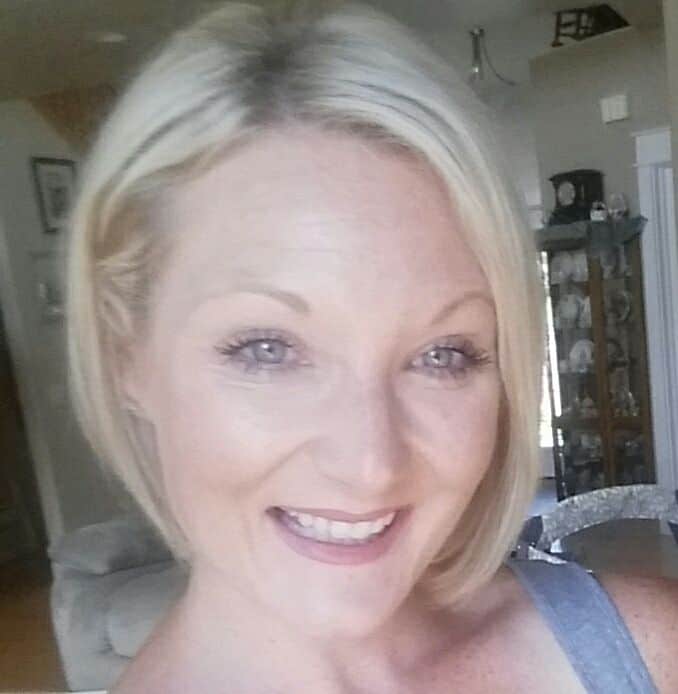
Laura Fontaine is the Director of World Relief Quad Cities and has been working with World Relief since April 2018. Laura grew up in various countries throughout Eruope as an Army Brat, which ignited her passion for working with and serving people from different cultures. She went on to study abroad in London, conduct research on development and security in South Africa and teach diplomacy and economics at the college level in China. She holds a B.A. in International Relations and History, and an M.A. in International Security and Arms Control with an emphasis in Strategy.
Treasures in the Dark
COVID-19 is proving to be a deep, dark season. It was March 16th when we closed our office and began working remotely. The virus hadn’t yet hit the Fox Valley area so although our team was preparing, we weren’t really sure for what. We began praying, as individuals and as a team, for the refugee and immigrant communities we serve.
At World Relief Fox Valley, we serve 10 different immigrant communities and several hundred individuals per year. They come to us from Congo, Burma, Iraq and South Sudan, just to name a few. While we don’t know every person’s specific story, we do know that all have persevered through unimaginable circumstances.
Many who have fled violence and poverty to come to the U.S. feel a sense of hope and opportunity when they arrive in the Fox Valley. No longer will their lives be measured by their ability to survive. Instead, opportunity has been restored, positioning many of them to thrive. Education, home ownership, business ownership — these new possibilities excite them, and they are eager to succeed and give back to the communities that have welcomed them.
While the immigrants we serve face many challenges in achieving these dreams, it didn’t take long for us to realize COVID-19 would only add to the complexity of their lives and delay their journeys forward. Though our newcomer friends have overcome insurmountable obstacles, this uncharted territory posed a unique set of challenges for them to navigate.
I remember thinking in those first days of the crisis, “It’s hard enough for Americans like me to wade through the ever-changing COVID-19 information. I can’t imagine trying to understand it in a new language and in a new home with new laws that I was still working to understand.”
With that in mind, in an effort to mitigate confusion and connect with those we serve, our team began reaching out to our clients shortly after we closed our office. We started with adults over 50, those who weren’t yet fluent in English and others we knew to be most at risk in these circumstances. We made phone calls and sent texts, asking people if anyone had gotten sick or if they needed anything. We also wanted to let them know how much we cared about them.
Initially, their responses were nonchalant and unaffected: “This text is to let you know that everybody in the (Burmese) community is doing well and staying safe,” one response read.
And so, we continued praying for their health and safety. Our prayers were answered with a resounding ‘yes’ for a while. But then we started hearing about refugees testing positive for COVID-19, families being quarantined and people being laid off. One of the first calls we received was from a group of people who all carpooled to the same worksite. They were all exposed to the virus and told to self- quarantine. We were able to ease some of their anxieties and offer a bit of hope by helping out with rent and groceries while they were quarantined.
That was just the beginning of the phone calls and requests for help we received. Our team moved quickly to support our clients in any way we could. We increased our outreach to ensure they were receiving accurate health information. We also began offering virtual services to help families navigate unemployment claims and understand stimulus check qualifications.
The work has been constant, a load that has weighed heavily on our team as we navigate our own uncertainties. Yet, in the midst of it all, I have been constantly reminded of God’s promise in Isaiah 45:3.
“I will give you the treasures of darkness, riches stored in secret places, so that you may know that I am the Lord, the God of Israel, who summons you by name.”
God has indeed gifted our team with treasures in this dark time. Our community of donors has given so generously, allowing us to provide financial assistance for those most affected by COVID-19. I’ve received so many messages from donors saying things like, “We wanted to share our stimulus money with organizations we support. Thanks so much for all you do.”
Messages like these give our team the fuel we need to continue this vital work.
Likewise, our volunteer community has been a treasure. They have donated masks, purchased and delivered groceries, coordinated video chats with clients to help them stay connected and visited nearly every market in Fox Valley in search of ugali, a favored staple of our Congolese population.
Then there is the community of local churches that have donated offerings, gift cards and prayers. The generosity has been astounding. “I have a question,” one church partner wrote to me. “How are some of the people you’re working with handling all this stay in place’ stuff? Do you have a need for gas and grocery cards? I think I can get you some if you can give me a rough idea of what the need is right now.”
And the most treasured of treasures? A community of refugees and immigrants who remind us of what resilience and perseverance look like. They remain faithful and, by their example, demonstrate to our staff, donors, volunteers and church partners that even in the midst of darkness and despair, there are treasures to be found.
“I was just telling God,” one person from the Hispanic community we work with told me, “I do not know what I am going to do, you need to help me.’ And just when I finished praying, I received your call!”Our refugee and immigrant communities have endured hardships before, and they have come out stronger on the other side. So we continue praying — for health and protection for everyone within our community, and that we would keep our eyes peeled for the treasures to be found even in the season of COVID-19.
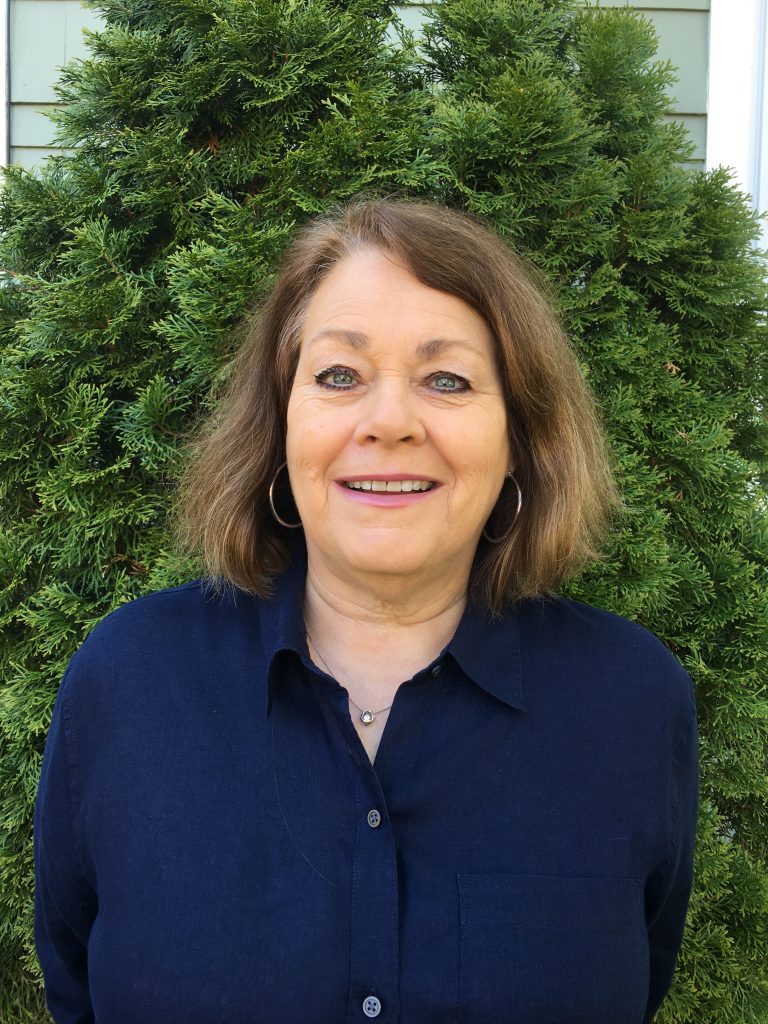
Tami McLaughlin first joined World Relief in 2014 as an Employment Specialist in Atlanta. Later that same year, she moved to Wisconsin to assume the role of Director of World Relief Fox Valley. Tami is passionate about developing service, fundraising and outreach programs and events and is dedicated to supporting the world’s most vulnerable.











